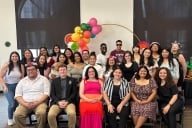You have /5 articles left.
Sign up for a free account or log in.
Dear Editor,
I nodded in silent agreement while reading Kolnick’s "Generals Die in Bed" and noticed that Joshua Kim's response had different errors, even though he sees himself wrapped in righteousness and all good things.
For starters, there is a problem with the idea that Kolnick’s expert knowledge or lack of knowledge matters in the case of online learning. The fact is that the rapid Covid roll-out of online education left a bad taste for it in the mouths of parents, teachers and students. They all know that it is inferior, regardless of what experts tell them.
If experts like Kim had been able to design and deliver all the elementary school lessons, up through all the high school classes, and college too, then it would be a different matter. But they cannot. Online is what it is, as they say, and Kolnick is right to call it out.
The threat of infection while teaching face-to-face (F2F) points to a conflict between generations in the classroom because students are more likely to rapidly recover, whereas older professors and instructors may not. Risk increases with age, and the presence of underlying health conditions. As Karl Mannheim has described, this pits the interests of the professorate against those of students -- and against those of administrators -- and gives new meaning to the title, “Generals Die in Bed.” No one seems to have noticed this underlying Covid-classroom dynamic, nor have they worked out its implications.
Then there is the problem of phenomenological intentionality that Kim glosses over. The online apparatus, the technology and software applications involved, does more than create obstacles for learning – it reorients the student (and the teacher) away from learning content toward the interface itself. Online schooling problematizes learning in ways that are absent in the classroom setting. The focus has shifted away from learning to the apparatus itself, and students don’t like it.
As a sociological matter, online is a pale reflection of what sociologist Randall Collins calls embodied interaction. In his recent blog article, Collins points to the ways in which “technologies become increasingly better at ferreting out what kinds of things happen in F2F interaction, that can be mimicked electronically” but never duplicated. It is always supplemental, never a substitute for the real thing. Every teacher that has succeeded in the classroom, and then tried to move that learning experience to online understands this problem. Educational quality suffers during the translation.
But implicit in Kim’s desperate plea is one hard, cold fact. Education during Covid leaves us with few options. Online education must work, Kim seems to be saying, because it is the only option. It is either online, or college meltdown.
Glen S. McGhee, Dir.
Florida Higher Education Accountability Project





